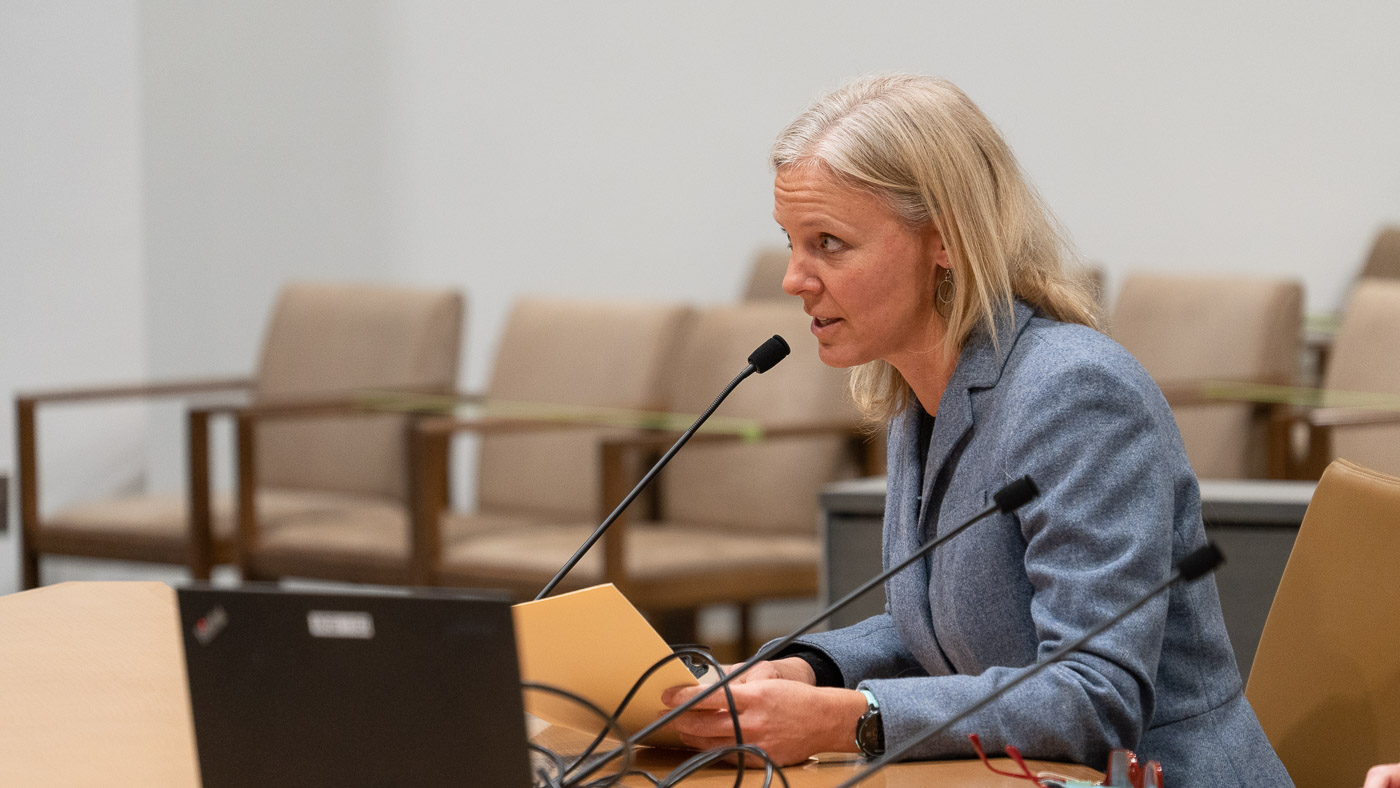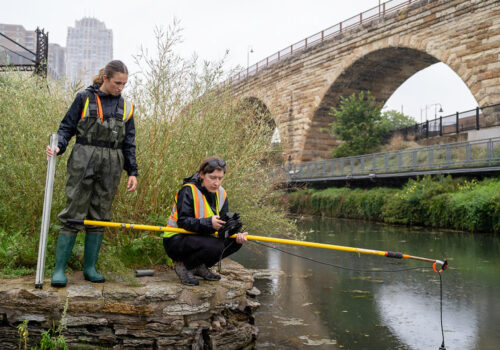News / February 22, 2022
MWMO Supports Bipartisan Smart Salting Legislation


A long-awaited smart salting bill appears to be moving forward with bipartisan support in the Minnesota Legislature.
On Feb. 16, Mississippi Watershed Management Organization staff testified in support of HF2908/SF2768 alongside a coalition of environmental advocates at a Minnesota Senate committee hearing. The bill would remove barriers and create incentives for commercial snow removal contractors to become certified in state-approved smart salting practices.
We know from our outreach to contractors and property managers that they would like to implement smart salting practices. Unfortunately, many face pressure from patrons who insist they use more salt and deicers than is necessary, believing falsely that this increases safety. And many worry about the potential for lawsuits, should a a slip-and-fall injury lead to accusations of improper winter maintenance.

The proposed legislation would help remedy this by creating a voluntary smart salting certification program for commercial salt applicators. Those who become certified would be protected from certain kinds of liability, such as the scenario described above, as long as they follow smart salting best practices. Those liability protections would also apply to property owners and managers who hire certified contractors.
For the last several years, the citizen group Stop Over Salting have been leading the charge to pass the legislation, with help from experts like smart salting training pioneer Connie Fortin. The Minnesota Center for Environmental Advocacy also threw its support behind the cause this year.
At the Feb. 16 hearing, MWMO Training and Community Learning Specialist Abby Moore told members of the Senate Environment and Natural Resources Policy and Legacy Finance Committee that smart salting training is critical to reducing the harmful impacts of chloride while maintaining safety. (You can read our full statement below.)
The MWMO and our partners regularly sponsor smart salting trainings for public and private snow removal professionals as well as property managers. In addition to protecting water quality, smart salting offers major cost savings potential for business owners. One example is the Mayo Clinic, which reduced its need for salt by 60 percent.
The bill has now cleared its first committee hurdles in both the House and Senate, and supporters are optimistic about its chances of becoming law this year.
Bonus: Watch the Feb. 16 hearing.

Full Text of the MWMO’s Statement to the Legislature
Delivered to the Senate Environment and Natural Resources Policy and Legacy Finance Committee on Feb. 16, 2022. (Download PDF Version)
Good Afternoon, Madame Chair and Members of the Committee. My name is Abby Moore and I’m the Training and Community Learning Specialist at the Mississippi Watershed Management Organization.
We know that a single teaspoon of salt contains enough chloride to permanently pollute five gallons of fresh water. Currently, in the Twin Cities Metro Area, we’re applying around 365,000 tons of salt on our roads and paved surfaces every year. An estimated 78 percent of that salt will eventually find its way to our groundwater supplies or to our surface waters, where it is toxic to fish and other aquatic life.
Unfortunately, much of our road salt is wasted — used in greater quantities than is needed, or used in the wrong conditions. We call this over-salting, and contrary to popular belief, more salt does not equal safer roads or sidewalks. It only means an excess of harmful chemicals impacting our water quality for generations to come.
The antidote to over-salting is smart salting. At the MWMO, we work with our state and local partners to sponsor smart salting training for public and private snow removal professionals. This training not only reduces the problem of over-salting; it also helps our salt applicators to become more effective, leading to improved public safety outcomes as well as cost savings.
The availability and accessibility of this smart salting training is critical to reducing the harmful impacts of chloride while maintaining safety on our roadways. We ask for your support in providing more training opportunities to our snow plow drivers and snow removal contractors.
We also need your support in relieving the burden of liability from those who are certified smart salters using best practices. We know from experience working with public works staff, snow removal contractors and business owners that they know what to do and want to help. But they worry about lawsuits from patrons who demand they blanket even dry pavement with salt granules, believing falsely that this increases safety.
If current trends continue, researchers have projected that some waterbodies in the metro area may no longer be able to support aquatic life by 2050. You can help reverse these trends today by supporting Senate File 2768/House File 2908. Thank you for your time.


